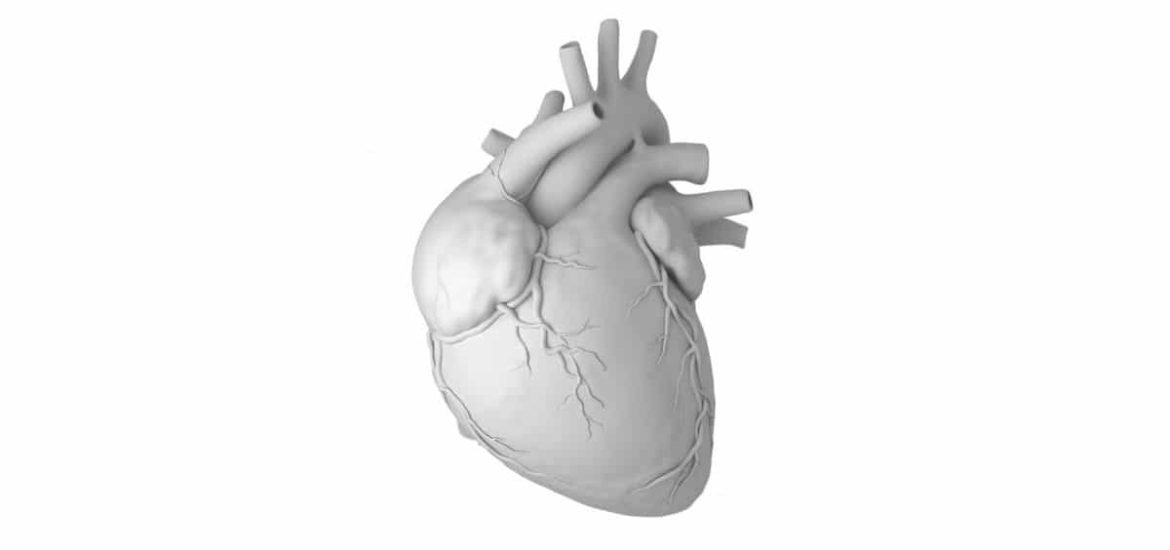
Two German studies published on 27 July in JAMA Cardiology have increased concerns about the potential negative impacts of COVID-19 on the heart, even in patients without underlying heart conditions.
Most studies on COVID-19 have focused on the lungs and respiratory effects of the infection caused by the novel coronavirus (Sars-Cov-2), however, evidence of cardiac (heart) effects are slowly mounting. People with underlying cardiovascular problems or heart problems are known to be at higher risk of complications from the COVID-19 infection, or even death. But the coronavirus may also damage the hearts of otherwise healthy individuals.
The first study involved 100 patients from the University Hospital Frankfurt COVID-19 Registry whole had recovered from the coronavirus infected between April and June. The average age was 49 and two-thirds recovered at home without hospitalisation. The researchers used magnetic resonance imaging (MRI) to examine the hearts of these patients and compared the results with those of 57 risk factor-matched patients and 50 healthy volunteers.
The scans revealed cardiac abnormalities in almost 80 per cent of patients who had recovered from COVID-19 infections, most often inflammation, followed by scarring. More specifically, 78 patients exhibited structural changes to their hearts, 76 had evidence of a biomarker signalling cardiac injury that typically shows up following a heart attack, and 60 showed signs of inflammation.
Most strikingly, heart involvement was found to be independent of any underlying condition. Moreover, the severity of the infection, length of the illness, and time from diagnosis to MRI did not seem to play a role. Even months later, recovered patients were more likely to show potential signs of cardiac trouble compared to the control group.
In the second study published on the same day, Lindner and colleagues analysed autopsies from 39 people with an average age of 85 who died from the virus. High levels of the virus were found in the hearts of 24 patients (2).
Since both studies were retrospective and observational, there is no way to determine the direct cause of these heart abnormalities. Nonetheless, the findings reveal “yet another facet of the illness that must be tracked”, says co-author Dr Valentina Puntmann at University Hospital Frankfurt in Germany.
Although too soon to tell whether damage to the hearts of recovered coronavirus patients will be permanent or temporary, the results are certainly concerning. In an editorial accompanying the two papers, authors Dr Clyde Yancy and Dr Gregg Fonarow highlight the ‘pressing burden of the ongoing COVID-19 crisis’.
They write: ‘the concerns we are raising are not theoretical but instead practical and require our due diligence to study and prepare for what may be another dimension of the COVID-19 crisis.’
‘We are inclined to raise a new and very evident concern that cardiomyopathy and heart failure related to Covid-19 may potentially evolve as the natural history of this infection becomes clearer.’
The heart is not the only cause for concern, other recent reports have suggested COVID-19 might have detrimental effects beyond the lungs. Anecdotal reports suggest COVID-19 may trigger diabetes in otherwise healthy patients. And neurologists have also sounded the alarm as mounting evidence shows delirium, brain inflammation, stroke, and nerve damage are just some of the possible neurological complications of COVID-19.
(1) Puntmann, V.O. et al. Outcomes of Cardiovascular Magnetic Resonance Imaging in Patients Recently Recovered From Coronavirus Disease 2019 (COVID-19). JAMA Cardiology (2020). DOI: 10.1001/jamacardio.2020.3557
(2) Lindner, D. et al. Association of Cardiac Infection With SARS-CoV-2 in Confirmed COVID-19 Autopsy Cases. JAMA Cardiology (2020). DOI: 10.1001/jamacardio.2020.3551
(3) Yancy, C.W. and Fonarow G.C. Coronavirus Disease 2019 (COVID-19) and the Heart—Is Heart Failure the Next Chapter? JAMA Cardiology (2020). DOI: 10.1001/jamacardio.2020.3575